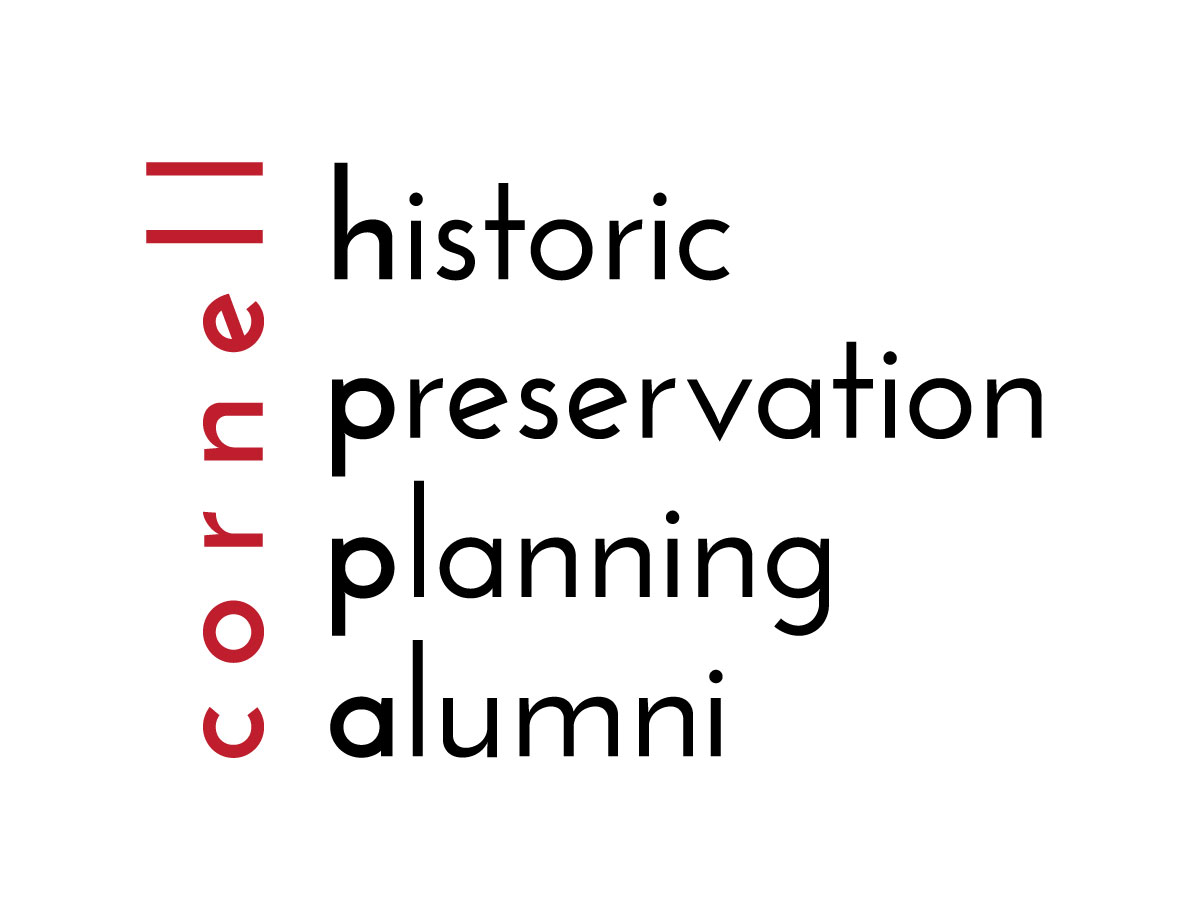About Us
Mission
Sustaining the growing network of Cornell preservationists.
History
Historic Preservation Planning Alumni, Inc. (HPPA) was founded in 1985, although the idea of incorporation was presented in 1984 and a working group was formed during the National Preservation Conference that same year. The working group was charged with preparing a set of by-laws (amended in 1989), outlining a mission, developing a membership list, and identifying programs and services that would be supported by the group. The first meeting of the board was held in the spring of 1985. One of the original members of HPPA went on to found the Preservation Studies Student Organization (PSSO), our companion non-profit organization for current Historic Preservation Planning students.
Our main sources of funding are donations, memberships, and the annual map sale facilitated by Historic Urban Plans.
The Board is guided by three objectives:
Program Support: HPPA will promote and support the Historic Preservation Planning program at Cornell University and its participants;
Member Support: HPPA will facilitate contact between members, inform members of preservation topics, and provide a forum for the exchange of ideas and dissemination of information concerning the program, the field and current issues;
Community Education and Support for the Profession: HPPA will advance the knowledge of members and the community at large regarding preservation issues, activities and developments in the field.
Today, the Board fulfills these objectives in many ways, including but not limited to, providing funds to students for travel to conferences and class trips, organizing and hosting the Cornell alumni receptions at national preservation conferences, producing and distributing newsletters, providing career advice to students and alumni, addressing issues related to professional practice through lectures at Cornell, and providing membership assistance.
The Board is made up of alumni as well as one faculty and student representative. The two non-alumni members are non-voting participants; however, their presence on the Board is part of the overall objective that there be good and useful communication and coordination between the alumni, the students and the faculty. The Board represents many different areas of historic preservation practice, different lengths of experiences in the profession, and many different regions of country.

